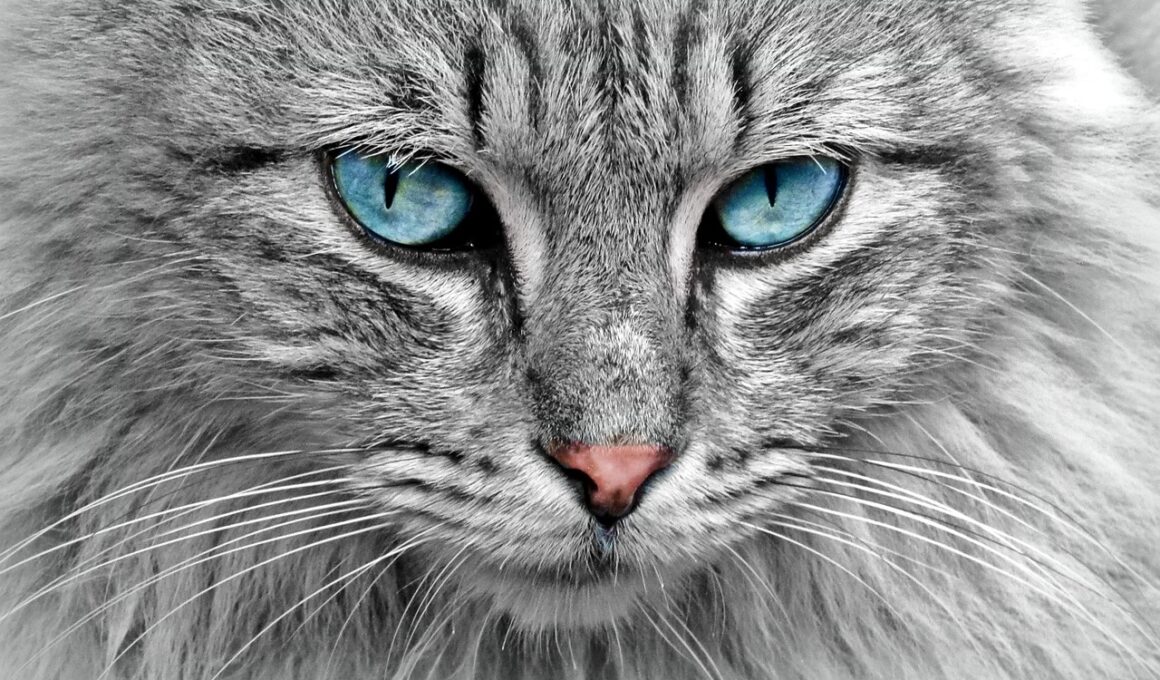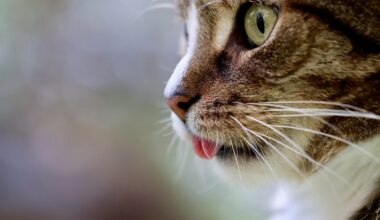Do Cats Hold Grudges? Exploring Feline Memory and Emotions
Cats are enigmatic creatures, often surrounded by myths and assumptions about their behavior and memory. Many cat owners frequently wonder, do cats actually hold grudges? While it may appear that cats react negatively towards a stimulus linked to a past distressing experience, exploring whether this constitutes a grudge is complex. Studies suggest that cats possess a remarkable memory capacity, particularly when it comes to negative experiences. This implies they can remember unpleasant interactions with other animals or humans, leading to seemingly punitive behaviors. An example is a cat avoiding a person who has hurt them in the past. However, it is vital to differentiate between true grudges and instinctual avoidance. Cats depend on their past experiences for survival. They learn to associate fear or discomfort with certain stimuli, indicating their memory is primarily survival-oriented. Factors such as environment, socialization, and experiences play critical roles in shaping a cat’s memory and behavioral responses. Understanding these dynamics can help us interpret our cats’ actions more accurately and bond with them through empathy and patience. This knowledge is crucial for cat owners to create a harmonious living environment.
In exploring feline memory further, it’s beneficial to understand the cognitive strengths of cats and how they process experiences. Unlike dogs, cats are solitary hunters and thus have different survival strategies implemented through their memory. Research indicates that cats tend to have associative memory capabilities that allow them to connect particular situations with outcomes. Just like a computer stores data, cats utilize their memory to avoid certain dangers in their surroundings. For instance, if a cat encounters a negative experience, such as a loud noise from a vacuum cleaner, it may develop an aversion to that noise. These behavioral patterns can appear as grudge-like characteristics but are reactions based on instinct. Studies show that cats have excellent long-term memory, especially regarding places where positive or negative experiences occurred. Unlike humans, who may hold emotional grievances, cats are more pragmatic about their interactions. Their memory primarily serves to maintain their safety and well-being. Therefore, while a cat may seem to be holding grudges, they are likely acting on learned behaviors that prioritize their comfort and safety.
The Science Behind Feline Memory
Understanding the science of feline memory amidst their behavior myths is essential for cat owners seeking to bond with their pets. Cats have a unique way of perceiving their environment, which can influence how they remember past experiences. Their memory can be categorized into two types: short-term and long-term. Short-term memory is crucial for tasks such as hunting, where quick reactions are required, while long-term memory allows cats to recall specific locations, individuals, and experiences over extended periods. Studies have shown that cats can remember people and other animals after long gaps, suggesting they can form attachments. However, this memory is largely situational. For example, they may recognize a person who fed them when they were hungry but might not have a personal connection. Cats tend to rely on emotional memories linked to feelings of safety or danger. They have remarkable facial recognition skills and can differentiate between friendly and unfriendly faces. Thus, their emotional responses can lead to seemingly grudging behavior if they feel threatened, misunderstood, or unsafe in a particular situation. Understanding these aspects aids owners in responding appropriately to their feline companions.
The implications of this understanding for cat owners are profound, as it opens new avenues for improving interactions with their pets. Acknowledging that cats approach their relationships with a pragmatic mindset rather than an emotional one can inform how we respond to them. They are more likely to react based on safety and comfort rather than harboring emotional grudges. For instance, if a cat feels threatened during grooming, they may retreat or hiss, which can create an illusion of holding a grudge against the owner. Instead, approaching them with patience and providing positive reinforcement when they are calm or relaxed can foster a better relationship. Establishing a structured routine for feeding and playtime can also positively influence their behavior, improving their emotional well-being. Creating a safe environment where a cat feels secure can diminish instances of aversion or avoidance. Clear communication, such as knowing their likes and dislikes, can also significantly increase the trust between cats and their owners, allowing for a deeper understanding and bond. By being attuned to their specific preferences and history, owners can achieve a harmonious relationship.
Breaking Down Common Myths
There are numerous myths surrounding cat behavior, particularly regarding the concept of grudges. Many believe that cats do indeed hold grudges against their owners for actions perceived as hurtful. This stereotype often arises from misunderstanding feline behavior. For instance, if a cat suddenly becomes distant after a visit to the veterinarian, it’s easy to assume a grudge, but it may be stemming from stress or discomfort rather than lingering resentment. Cats interact differently than dogs, who may display their emotions more overtly. Cats are more subtle, relying on body language to express their feelings. A cat’s choice to isolate itself after a negative experience primarily indicates stress rather than active resentment. Moreover, cats can re-establish trust through positive interactions, highlighting their adaptability. Consistently providing a nurturing environment can help to counter the effects of perceived grudges. Owners can utilize various methods like engaging play, treats, and gentle petting to reassure their feline friends. Recognizing and shattering these common myths can lead to enhanced understanding, reducing unnecessary guilt among cat parents. A better-informed owner helps both understand and connect with their cat.
Additionally, the way we perceive our cats also determines how they perceive us. Fear or discomfort arising in a home can lead a cat to develop avoidance behavior. Human emotions can impact feline behavior, resulting in the cat withdrawing or becoming anxious. It’s crucial for owners to be mindful of their emotional states, as heightened anxiety can be contagious and make a cat feel less secure. Proper understanding of emotional intelligence between humans and cats helps cultivate a more harmonious environment. When a cat feels safe, they are less likely to exhibit behavior that seems retaliatory. Instead of interpreting behavioral changes as grudges, cat owners should consider underlying factors. Addressing potential triggers for fear or anxiety can directly influence how cats react to past experiences. Owning multiple pets may increase the potential for rivalries or conflicts, emphasizing the need for managing dynamics. A peaceful household promotes positive outcomes for mutual trust. Education on feline needs, sensitivities, and emotional responses enriches the human-animal bond. By prioritizing emotional well-being, owners cultivate a safer atmosphere that encourages responsiveness and connection.
Conclusion: Embracing Understanding and Patience
In conclusion, the concept of whether cats hold grudges is best understood through an exploration of their behavioral patterns and emotional constructs. While they can remember distressing events and exhibit reactions stemming from those memories, interpreting those reactions solely as grudges lacks a complete understanding. Cats prioritize their safety and well-being, employing memory as a survival mechanism rather than a tool for vengeance or resentment. This exploration helps simplify misunderstandings that contribute to perceived negative behaviors in cats. Instead of viewing their actions through the lens of grudges, recognizing their instinctual tendencies, and learning to rebuild trust can significantly enhance the owner-cat relationship. Building a bridge with patience and empathy aids in reshaping those memories into positive ones. Owners can encourage their cats to face fearful experiences with confidence. Understanding the intricacies of feline psychology provides practical insights into improving interactions and establishing bridges of trust between cat and human. Embracing a mindset focused on empathy, reminiscent of feline instincts, enriches the journey of companionship, allowing for a fulfilling and understanding bond.


